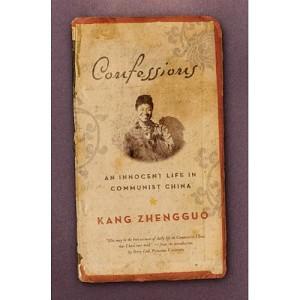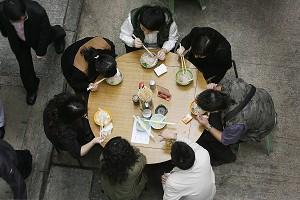Confessions, “a remarkable memoir about growing up in Mao’s China” as stated by the New York Times, has recently been made available to Western readers. It’s author, Kang Zhengguo, a Yale University lector barely escaped detention by the Public Security Bureau on his recent trip to China. On June 15, he safely returned to the United States with the assistance of the U.S. embassy.
China’s Adventures Never Cease
Kang is certainly no stranger to this type of adventure. On a trip to his hometown in Shaanxi Province in 2000, the police detained him for three days and three nights before his return to the United States.
Just recently, he visited China to be with his sick mother. After the visit, he went to his son’s home in Shanghai to prepare for his return to the U.S. However, that’s when his troubles began.
Kang said, “On the afternoon of the June 14, on my way back to my son’s home, two men approached me right at the door. They said, ‘We came from Shaanxi to talk to you.’ I responded, ‘We can talk right here.’ They said, ‘It would be better at a hotel,’ while a man was trying to grab my arm. I escaped and entered the building. Immediately, I called the U.S. embassy while they were pounding on the door. The whole episode lasted about half an hour.”
Kang decided to cut the trip short. Two men continued to call Kang and asked him to talk at another place.
Kang Zhengguo described that night: “At 12:30 a.m., I received two phone calls. The person on the phone said, ‘We are the police from Shaanxi. How come you did not report to us?’ I asked, ‘Have I committed any crime?’ He said, ‘No, but your behavior this afternoon was serious. It’s against the law to refuse to talk to the police.’ I said, ‘That’s strange. I don’t need to talk to you.’ He was angry, ‘This is your last chance,’ and their last words were, ‘Just you’ll see.'”
Accompanied by the U.S. embassy, Kang finally boarded a plane to the U.S. and left China.
Kang is currently teaching Chinese at Yale University. During the 1990s, he had a bumpy journey in China. During the 1960s and 1970s, he was expelled from the local University because of his radical thinking and writings. He was sentenced to three years in prison because of his letter to the Moscow University Library requesting a copy of “Dr. Zhivago” as detailed in his book Confessions.
Confessions was honored as the Contemporary Chinese Contribution by the Institute of Contemporary Chinese. The Institute praised, “Mr. Kang Zhengguo’s cognizant language has allowed him to transcend the corruption and insults that contemporary Chinese language suffers. To a certain degree, he awakens our feelings.”
Recently, the English version was made available to the public. It was also voted “Book of the Times” in the New York Times on June 13, the police of Shaanxi requested a meeting with Kang the very next day when he was visiting his son in Shanghai.
Kang mentioned, “My publisher, Norton Press, and friends at Yale University all believe that the Sunday Book Review conducted by the New York Times created a strong and positive influence which might have caused their reaction. I am not so sure about that. I still believe that even though the year 2000 incident has concluded, the U.S. government intervened to ensure my release. They[Chinese police] are still trying to get me whenever I go back.”
Why the Attention?
In the past 20 years, there have been numerous works describing Mao’s period that have been translated into English. What made Kang’s book attract so much attention?
Kang answered, “I don’t consider myself as being persecuted. I don’t tell the story with anger or sadness. I don’t accuse. I simply treat myself as a nerd who tries to describe circumstances with some sort of ridicule. That might have intrigued the interest of American readers.”
Kang believes that Chinese has always been an elegant and gentle language. However, over the past 50 years since 1949 [when the Communist Party took over China], the people have gradually been forced to unknowingly use a confined system to express themselves in their daily lives and in their writings.
Kang said that because of this awareness, he has tried very hard to write sensibly so that it’s closer to life and human nature. Perhaps that’s the reason why Confessions became so popular.




